
 Published on and written by Cyril Jarnias
Published on and written by Cyril Jarnias
Portugal has become a top destination in recent years for many expatriates seeking a pleasant living environment, affordable cost of living, and welcoming culture. Whether you’re a young professional, entrepreneur, or retiree, this comprehensive guide will give you all the keys to successfully settle in the land of Vasco da Gama and Cristiano Ronaldo.
To learn more, explore our other articles about Portugal:
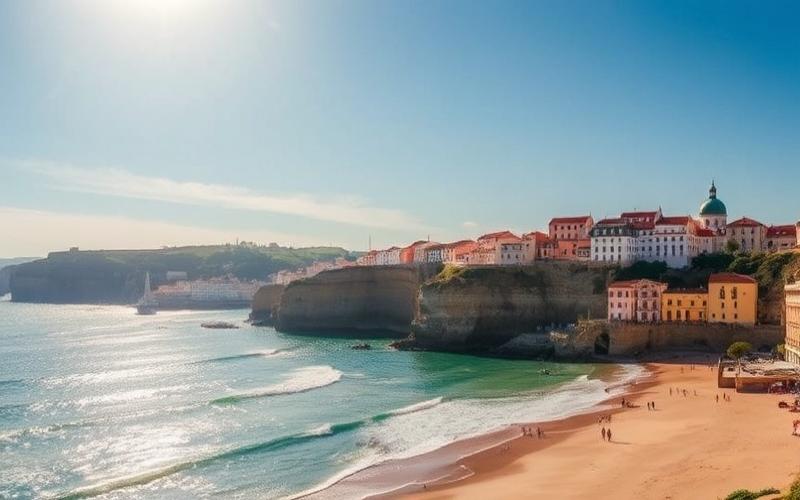

Moving to Portugal means immersing yourself in a rich culture where religion, though subtle in daily life, plays an important [...]


Portugal has become a top destination for expatriate entrepreneurs looking to start their business abroad. With its favorable economic environment, [...]
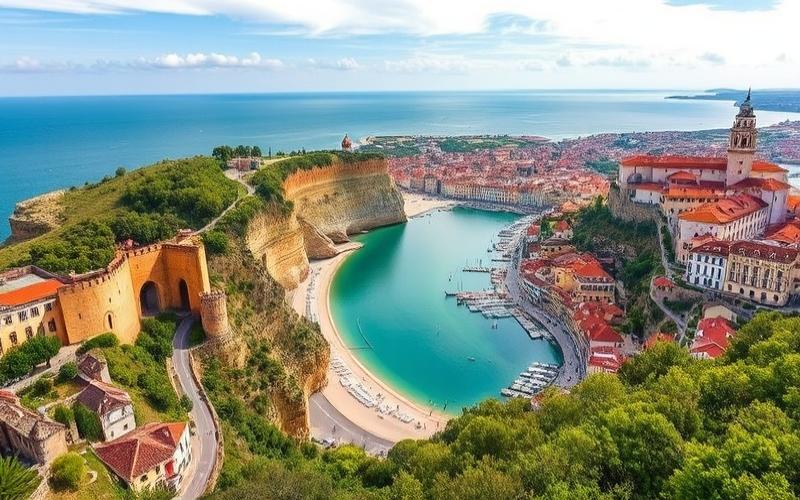

Portugal is an increasingly popular destination for expatriates, particularly for its quality of life and pleasant climate. But what about [...]


Portugal has become an increasingly popular destination for expatriates seeking to pursue higher education abroad. With its rich cultural heritage, [...]


Portugal is attracting more and more expats drawn by its quality of life, pleasant climate, and affordable cost of living. [...]
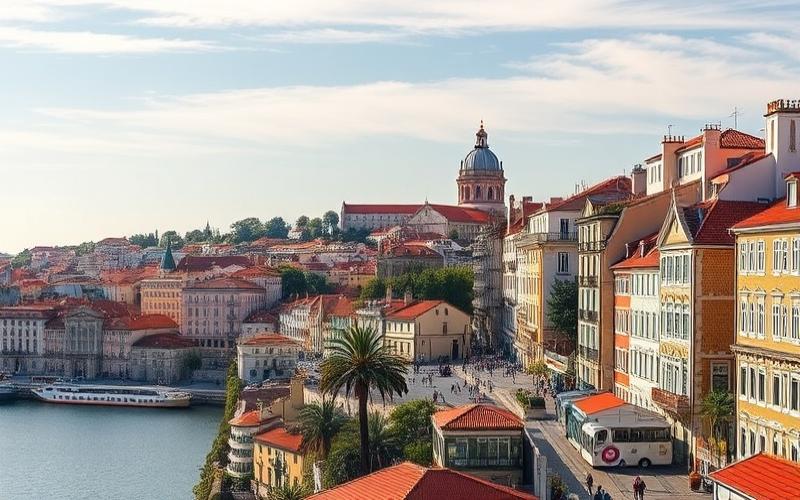

Portugal has become a top destination for many expatriates seeking an enjoyable living environment and affordable cost of living. However, [...]
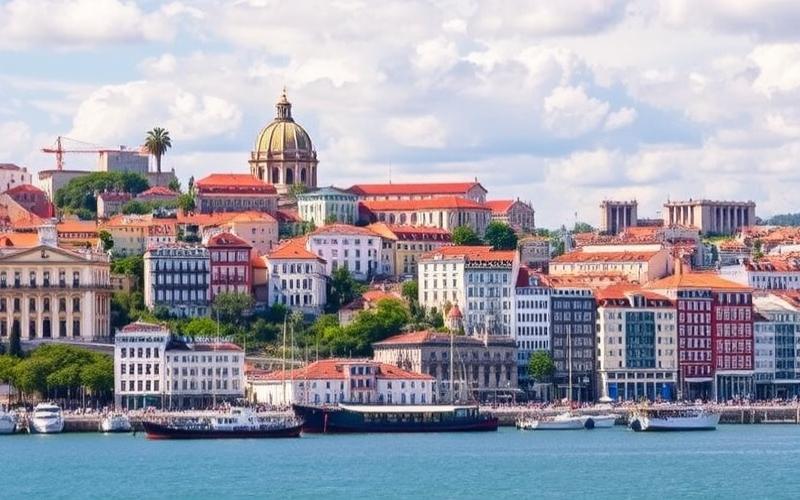

Portugal is attracting more and more expatriates seeking a better quality of life at a lower cost. With its pleasant [...]
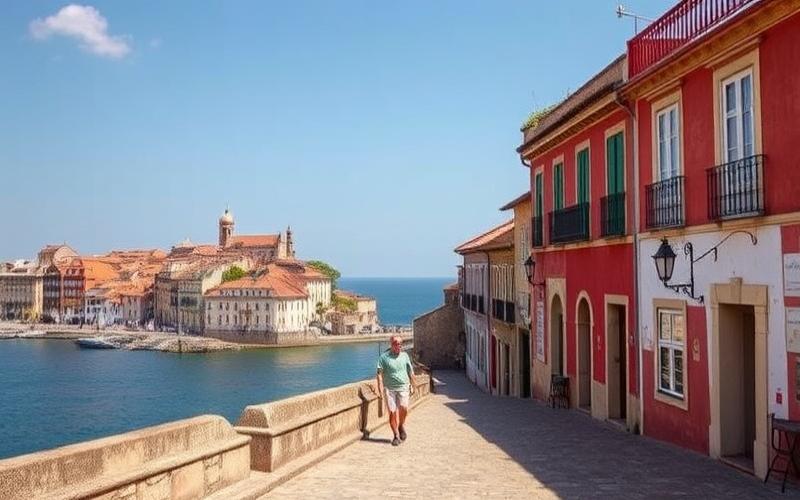

Portugal has established itself in recent years as a top destination for expatriates seeking professional opportunities and a better quality [...]
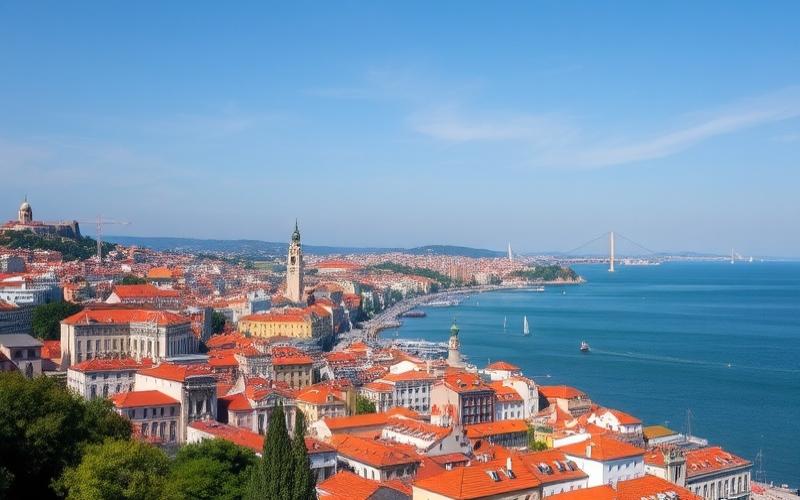

Portugal is attracting more and more French expatriates, drawn by its sunny climate, quality of life, and laid-back lifestyle. But [...]


Portugal, with its picturesque cities and breathtaking landscapes, offers a diverse and efficient public transportation network. Whether you’re a newly [...]
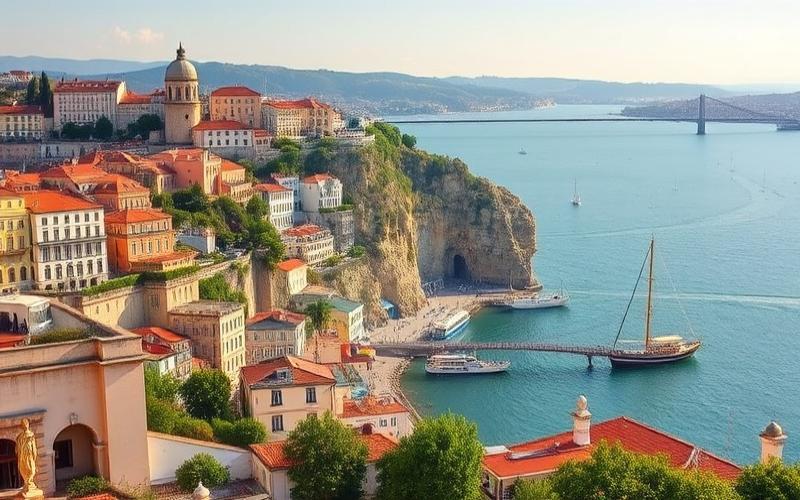

Portugal, a country of a thousand facets, is filled with treasures just waiting to be discovered. From the golden beaches [...]


Portugal is renowned for its cuisine, beaches, and historical heritage, but did you know its nightlife is equally captivating? From [...]
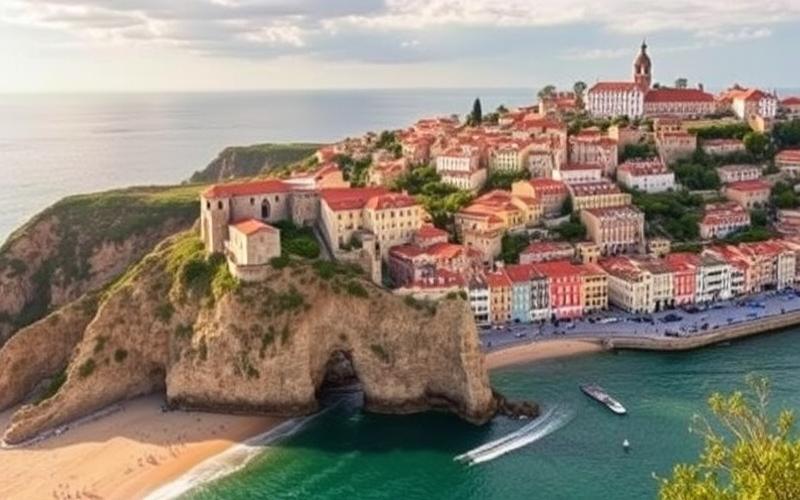

Moving to a new country is an exciting adventure, but it can also come with moments of nostalgia and homesickness. [...]
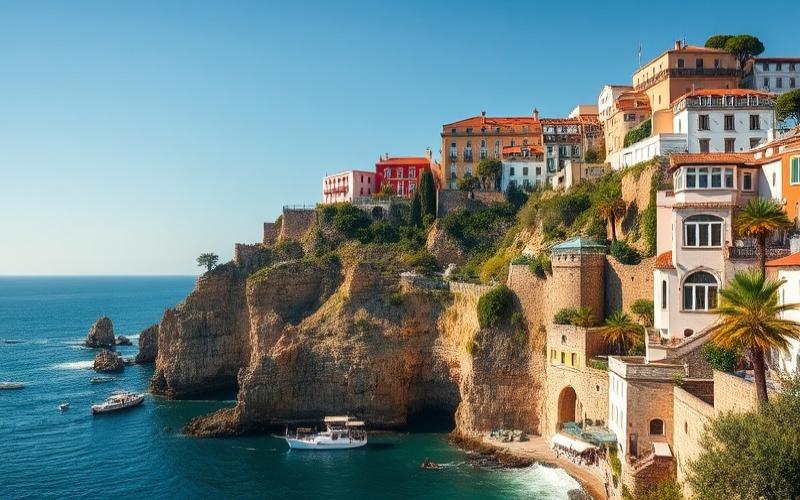

Portugal’s appeal to expatriates continues to grow, and for good reason: between its Mediterranean climate, quality of life, and advantageous [...]


Moving to Portugal is an exciting adventure, but staying in touch with family and friends back home can sometimes feel [...]
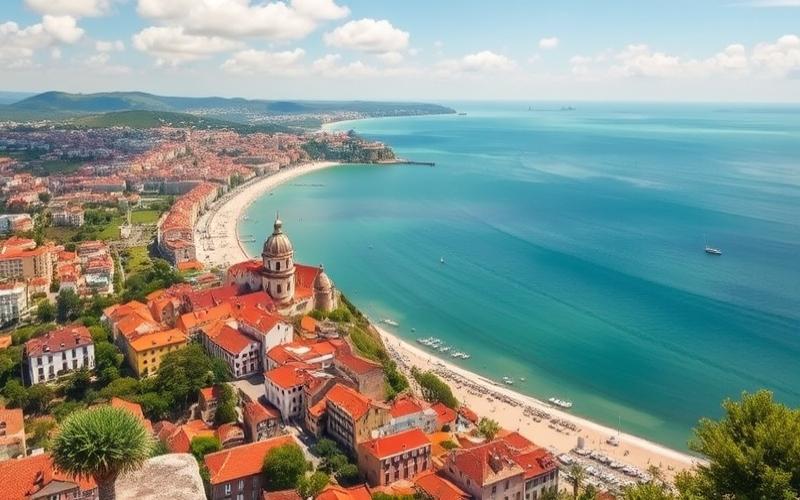

Portugal, the sun-drenched country of the Iberian Peninsula, is much more than just a destination for beaches and wine. It’s [...]


Portugal, with its enchanting landscapes, rich historical heritage, and welcoming population, is attracting more and more expatriates from around the [...]
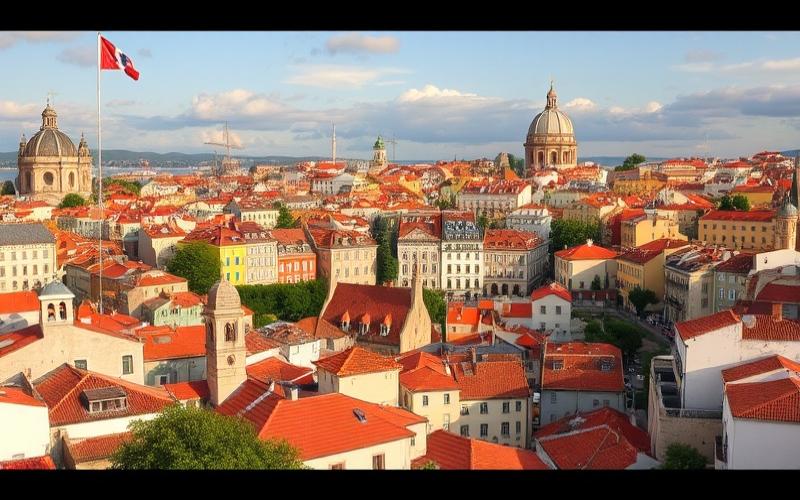

Portugal, a country with rich and diverse culinary traditions, offers expatriates a unique gastronomic adventure. Between marine flavors, succulent meats, [...]
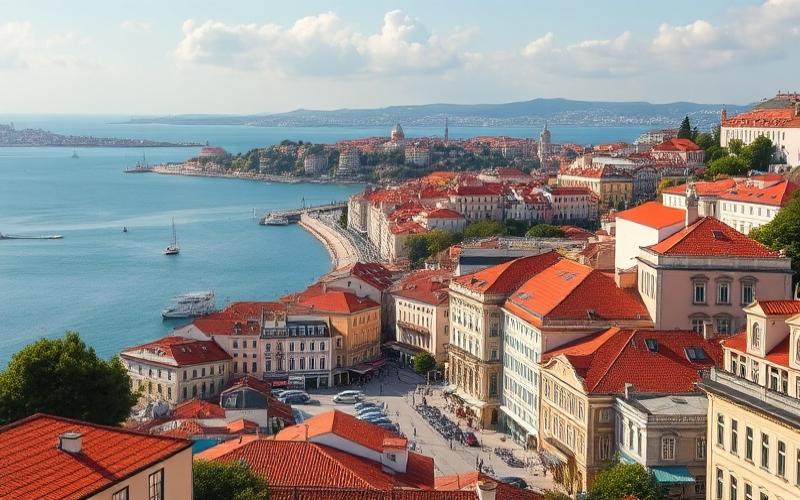

Learning the local language is a crucial step for any expatriate wishing to fully integrate into their host country. In [...]
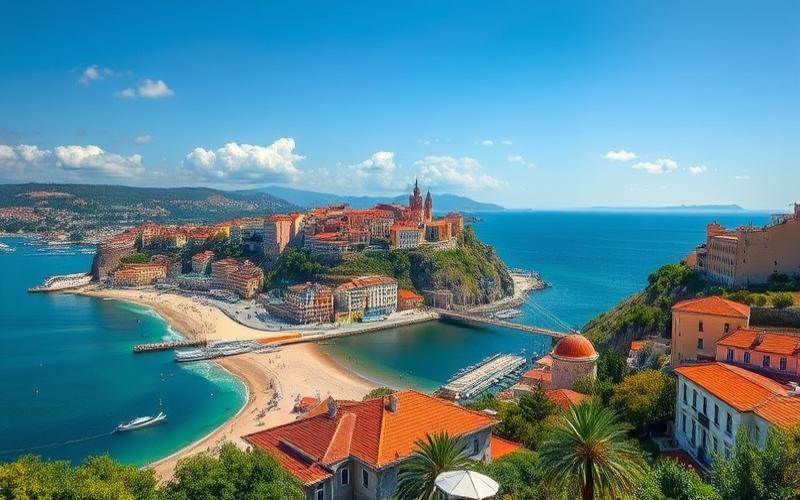

Portugal has become a top destination for many expatriates looking to invest in real estate. With its pleasant climate, attractive [...]


Here is the article written according to your instructions: Relocating to Portugal represents an exciting opportunity, but also a significant [...]


Portugal, with its Mediterranean climate and varied landscapes, attracts many expatriates seeking a better quality of life. However, adapting to [...]
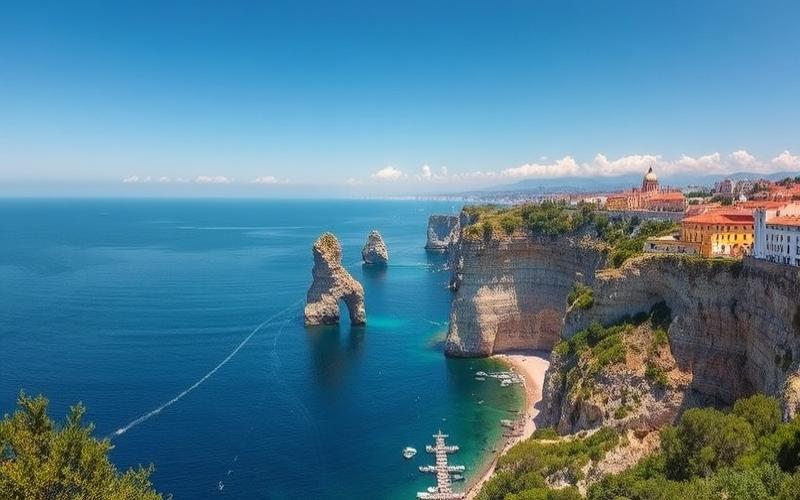

Relocating to Portugal is an exciting adventure, but it requires careful financial planning. Managing your finances internationally may seem complex, [...]
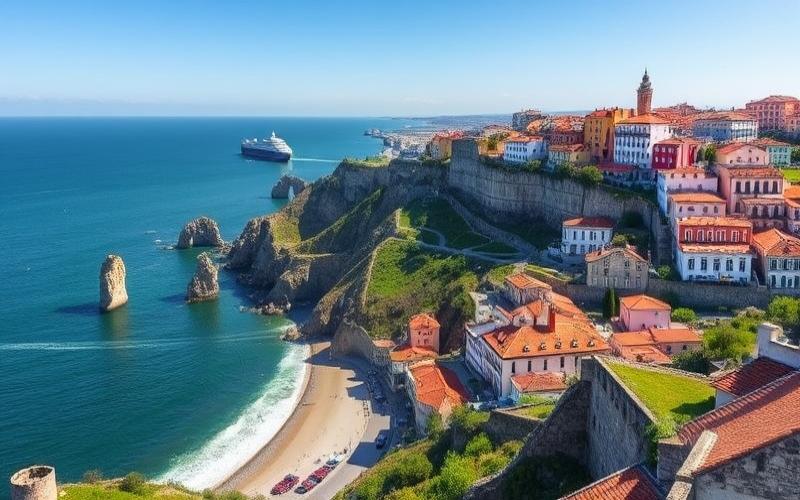

Relocating abroad is an exciting adventure, but it can become complex when you want to bring your loyal four-legged companions [...]
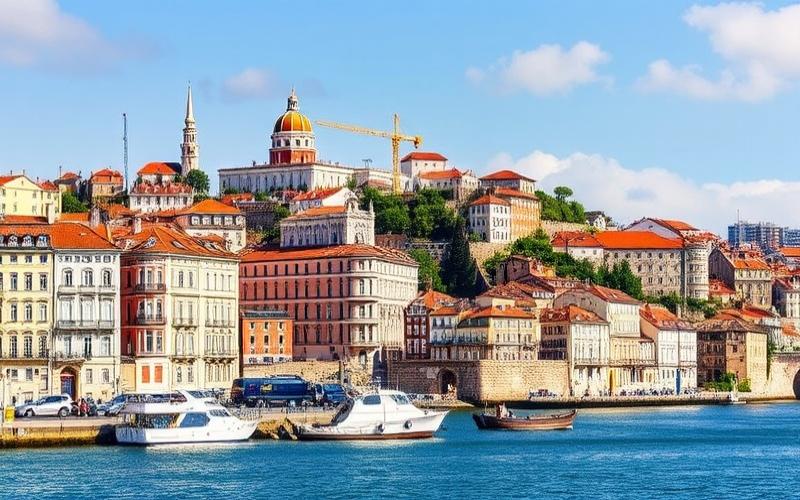

Portugal’s history is a fascinating odyssey through the centuries, marked by conquests, discoveries, and profound transformations. For expatriates choosing to [...]


Portugal, a country located at the southwesternmost tip of Europe, offers varied and fascinating geography. From its Atlantic coasts to [...]
Pack Your Bags: Essentials Before the Big Move
Before packing your boxes and saying goodbye to your home country, it’s crucial to properly prepare for your move to Portugal. Good preparation will allow you to approach your new life calmly and avoid unpleasant surprises.
Research your future host region. Portugal offers great diversity in landscapes and atmospheres, from cosmopolitan Lisbon to the beaches of the Algarve and the Douro Valley. Each region has its own characteristics in terms of climate, cost of living, and professional opportunities. Take the time to learn about the different regions to find the one that best matches your expectations and lifestyle goals.
Learn basic Portuguese. Even though many Portuguese people speak English, especially in larger cities, mastering a few basic phrases in Portuguese will greatly facilitate your daily life and will be appreciated by locals. Sign up for language classes before your departure or use apps like Duolingo to familiarize yourself with the basics of the language of Camões.
Review your administrative and financial situation. Make sure all your important documents are up to date (passport, driver’s license, diplomas, etc.) and have them translated if necessary. Inform your bank about your move and inquire about international money transfer options. It might be wise to open an international bank account to facilitate transactions between your home country and Portugal.
Prepare your health coverage. If you’re a European citizen, apply for your European Health Insurance Card before departure. For non-Europeans or for more comprehensive coverage, consider taking out international health insurance tailored to your situation.
Good to know:
Portugal enjoys a mild Mediterranean climate, but winters can be cool and damp, especially in the northern part of the country. Pack clothing suitable for all seasons.
Welcome to Portugal: First Steps to Settle In
Once you arrive on Portuguese soil, several administrative procedures await you to formalize your status as an expatriate and begin your new life in full legality.
Get your tax number (NIF). The NIF (Número de Identificação Fiscal) is essential for many procedures in Portugal, including opening a bank account, signing a lease, or paying taxes. You can obtain it from the tax authorities (Finanças) or at certain post offices. Bring your passport and proof of address, even if temporary.
Register with Social Security. If you plan to work in Portugal, you’ll need to register with Portuguese Social Security to get your social security number. This procedure can be done online or at a local Social Security office.
Register with your local town hall. If you’re a European citizen and plan to stay in Portugal for more than three months, you must register with the town hall (Câmara Municipal) of your place of residence within 30 days of arrival. You’ll receive a registration certificate valid for 5 years.
Open a local bank account. Although not mandatory, having a Portuguese bank account will greatly facilitate your daily life, especially for paying bills and receiving your salary if you work locally. Most banks offer services in English and some even have special offers for expatriates.
Register your vehicle. If you’ve imported your vehicle, you must register it in Portugal within 60 days of arrival. This process can be complex and expensive, so make sure to research the procedures and applicable taxes thoroughly.
Good to know:
Portugal is known for its sometimes slow bureaucracy. Be patient and don’t hesitate to use expatriate assistance services to help you with your procedures.
Your Key to Portugal: Understanding Visas and Residence Permits
The type of visa or residence permit you’ll need depends on your nationality, length of stay, and professional situation. Here are the main options available to you:
For European Union citizens: If you’re a citizen of an EU country, the European Economic Area, or Switzerland, you don’t need a visa to enter Portugal. You can stay freely for 3 months. Beyond that, you must register with the town hall of your place of residence to obtain a registration certificate valid for 5 years.
For non-Europeans: Several types of visas are available depending on your situation:
– Work visa: If you have a job offer in Portugal, you can apply for a work visa. Your employer will usually need to initiate the procedure.
– Student visa: For those wishing to pursue higher education in Portugal.
– Retirement visa: Intended for retirees who can demonstrate sufficient income to live in Portugal without working.
– Golden Visa: This controversial program allows you to obtain a residence permit in exchange for a significant real estate or financial investment in the country.
– Digital Nomad Visa: Recently introduced, this visa is aimed at freelancers and remote workers wishing to settle in Portugal.
To obtain a visa, you’ll generally need to provide the following documents:
– Valid passport – ID photos – Proof of financial resources – Health insurance – Clean criminal record – Proof of accommodation in Portugal
Residence permit renewal: Most residence permits are valid for 1 or 2 years and can be renewed. For renewal, you’ll need to prove that you continue to meet the initial conditions (employment, financial resources, etc.) and that you have actually resided in Portugal.
Good to know:
Visa procedures can be lengthy and complex. It’s recommended to start the process several months before your planned move to Portugal.
Finding Your Cozy Nest: The Search for the Perfect Home
Finding housing that suits your needs and budget is a crucial step in settling in Portugal. The Portuguese real estate market has experienced significant growth in recent years, particularly in major cities, but remains generally more affordable than in many European countries.
Rent or buy? Most expatriates start by renting a home while familiarizing themselves with their new city and the local real estate market. Renting offers more flexibility, but buying can be a good long-term investment, especially since interest rates are relatively low in Portugal.
Where to look? Several options are available for finding your future home:
– Specialized websites: Idealista, OLX, Imovirtual are among the most popular. – Real estate agencies: They can assist with your search and administrative procedures, for a fee. – Expatriate Facebook groups: Often a good source of information and listings. – Word of mouth: Don’t hesitate to let people know you’re looking for housing.
Required documents: To rent an apartment, you’ll generally need:
– Your tax number (NIF) – An ID document – Proof of income – A security deposit (usually 1 to 3 months’ rent)
Watch out for local specifics: Some homes in Portugal, particularly in old neighborhoods, may lack thermal insulation. Make sure your future home is equipped with heating for the winter.
Tight rental market: In major cities like Lisbon and Porto, the rental market is very tight. Properties often get rented in less than 24 hours, especially for units between 1000 and 1500 euros per month. In Funchal, for example, 33% of properties in this price range are rented in less than a day. So be responsive and ready to make a decision quickly.
Good to know:
Portugal has implemented measures to regulate rents in certain areas, particularly in Lisbon and Porto. Research these regulations to avoid unpleasant surprises.
Fitting In Like a Fish in Water: Keys to Joining the Local Community
Integrating into your new community is essential to fully enjoy your expatriate experience in Portugal. The Portuguese are known for their hospitality, but you’ll need to make an effort to create genuine connections.
Learn the language: This is the best way to integrate and understand the local culture. Sign up for Portuguese classes, use language learning apps, or find a conversation partner.
Participate in local life: Attend neighborhood parties, local festivals, and cultural events. Portugal is full of traditions and celebrations throughout the year, providing the perfect opportunity to meet locals and immerse yourself in the culture.
Join clubs and associations: Whether it’s a sports club, charity organization, or hobby group, it’s an excellent way to meet people who share your interests.
Explore local cuisine: Portuguese food is delicious and varied. Don’t hesitate to frequent small neighborhood restaurants, local markets, and try regional specialties.
Use social media: Facebook groups like “Lisbon Digital Nomads & Expats” bring together tens of thousands of members and can be an excellent resource for getting advice, participating in events, and meeting other expatriates.
Work in a coworking space: If you’re a freelancer or remote worker, coworking spaces like Second Home or Cowork Central in Lisbon are ideal places to network and meet other professionals.
Be open-minded: Portuguese culture may have aspects different from what you’re used to. Stay open, curious, and respectful of local customs.
Good to know:
Portugal is a country where personal relationships are very important. Taking the time to chat and share a coffee with your neighbors or colleagues is an essential part of social life.
Settling in Portugal involves familiarizing yourself with a number of administrative procedures. Although Portuguese bureaucracy can sometimes seem complex, understanding these processes will help you establish yourself legally and comfortably in your new country.
Residence declaration: If you’re an EU citizen and staying more than 3 months, you must register with the local town hall (Câmara Municipal) to obtain your residence certificate.
Health system registration: Portugal has a public health system, the Serviço Nacional de Saúde (SNS). To access it, you must register with the local health center in your area of residence.
Vehicle registration: If you import your vehicle, you must register it in Portugal within 60 days of arrival. This procedure involves several steps and can be costly, particularly due to import taxes.
Tax declaration: Even if you’re an expatriate, you’ll likely need to file a tax return in Portugal if you reside there for more than 183 days per year. The Portuguese tax system can be complex, so it’s recommended to consult a local accountant.
Diploma recognition: If you wish to practice a regulated profession in Portugal, you’ll need to have your diplomas recognized. This procedure is usually done through the Ministry of Education or the relevant professional order.
Voter registration: EU residents can vote in local and European elections in Portugal. To do so, you must register on the electoral rolls of your municipality.
Good to know:
Portugal has established a one-stop shop for expatriates, the “Balcão Único do Imigrante,” which centralizes many administrative procedures. Don’t hesitate to use it to simplify your processes.
Know Your Rights: Laws and Regulations Concerning Foreigners in Portugal
Portugal is generally considered a welcoming country for expatriates, with relatively favorable laws and regulations. However, it’s important to know your rights and obligations as a foreign resident in Portugal.
Labor law: Expatriates generally enjoy the same rights as Portuguese workers, particularly regarding minimum wage, paid leave, and social protection. The employment contract must be in Portuguese, although a version in your language may be provided.
Property rights: Foreigners have the right to purchase real estate in Portugal without particular restrictions. However, certain areas may be subject to specific regulations, particularly in border regions.
Family reunification: Legal residents in Portugal have the right to bring their family (spouse, minor children) under family reunification, subject to certain conditions regarding resources and housing.
Access to public services: Legal residents have access to Portuguese public services, including the health system and education, under the same conditions as Portuguese citizens.
Taxation: Portugal offers advantageous tax regimes for certain types of expatriates, particularly the “Non-Habitual Resident” status which allows for reduced taxation for 10 years on certain types of income.
Data protection: As an EU member, Portugal applies the General Data Protection Regulation (GDPR), ensuring a high level of protection for your personal data.
Discrimination: Portuguese law prohibits all forms of discrimination, including based on nationality or ethnic origin. If you’re a victim of discrimination, you can file a complaint with the Commission for Equality and Against Racial Discrimination.
Good to know:
Portugal recently introduced restrictions on “Golden Visas” in major cities to combat real estate speculation. These changes reflect the constant evolution of laws concerning foreigners, so it’s important to stay informed about the latest regulations.
Moving to Portugal as an expatriate is an exciting adventure that requires preparation and patience. Between the quality of life, cultural richness, and professional opportunities, the country offers an attractive living environment for many foreigners. By following this guide and remaining open to local particularities, you’ll maximize your chances of successfully settling under the Lusitanian sun.
Remember that every expatriate experience is unique. Take the time to discover the country at your own pace, immerse yourself in its culture, and create authentic connections with locals. With a little time and effort, you’ll soon feel at home in your new Portuguese life.
Disclaimer: The information provided on this website is for informational purposes only and does not constitute financial, legal, or professional advice. We encourage you to consult qualified experts before making any investment, real estate, or expatriation decisions. Although we strive to maintain up-to-date and accurate information, we do not guarantee the completeness, accuracy, or timeliness of the proposed content. As investment and expatriation involve risks, we disclaim any liability for potential losses or damages arising from the use of this site. Your use of this site confirms your acceptance of these terms and your understanding of the associated risks.



